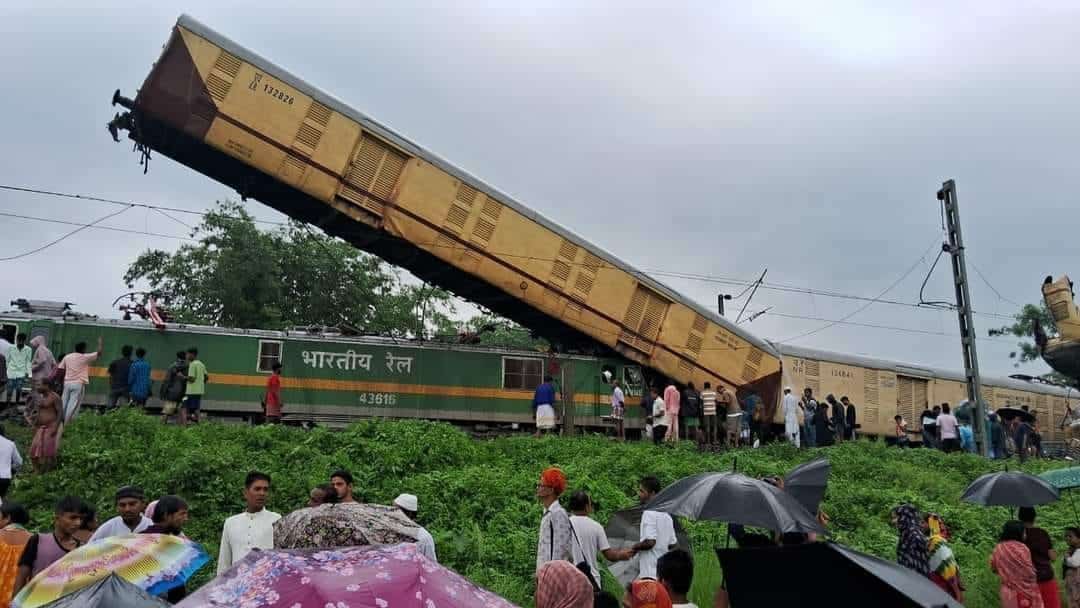News
Kanchanjunga Express and the Worst Train Accidents Over the Last Decade
A Collision of Tragedy: The Kanchanjunga Express Incident
In a tragic turn of events, a collision between the Kanchanjunga Express and a goods train near Rangapani station in Darjeeling district, West Bengal, has injured several passengers. The Kanchanjunga Express, which was travelling from Silchar in Assam to Sealdah in Kolkata, was struck by the goods train, leading to the derailment of two of its coaches. Initial reports indicate that at least 5 passengers have been killed, with the numbers possibly rising as rescue operations continue.
Prime Minister Narendra Modi announced compensation of ₹2 lakh for the families of the deceased and ₹50,000 for the injured. Abhishek Roy, Additional SP of Darjeeling Police, confirmed the severity of the situation, stating, “Five passengers have died, and 20-25 were injured in the accident. The situation is serious.
A Reflection on India’s Railway Ecosystem
The recent Kanchanjunga Express incident has cast a harsh light on the Indian railway ecosystem, raising serious concerns about safety and management within the vast network. This tragic accident has intensified the scrutiny on the Indian Railways, with many leaders and users demanding the resignation of Railway Minister Ashwini Vaishnaw. The calls for his resignation stem from a growing frustration over the recurring nature of such accidents, often attributed to systemic failures, including poor maintenance, outdated infrastructure, and inadequate safety measures.
India’s Worst Train Disasters in the Last 10 Years
Over the past decade, India has witnessed numerous train accidents resulting in significant loss of life and property. Here are some of the most devastating incidents:
Chennai Train Collision (2014)
A collision at the Chennai Beach station on April 1, 2014, between a passenger train and a stationary train resulted in 9 deaths and multiple injuries. The accident underscored the risks associated with congested urban railway networks.
Kanpur Train Derailment (2016)
One of the deadliest accidents in recent memory occurred on November 20, 2016, when the Indore-Patna Express derailed near Kanpur, Uttar Pradesh. The high-speed derailment resulted in 150 fatalities and numerous injuries, emphasizing the need for stringent safety protocols on high-speed routes.
Pukhrayan Train Derailment (2016)
On the same day as the Kanpur derailment, another disaster struck in Pukhrayan, Uttar Pradesh. Fourteen coaches of the Indore-Rajendranagar Express derailed, leading to 152 deaths and numerous injuries.
Jagdalpur-Bhubaneswar Hirakhand Express Derailment (2017)
On January 21, 2017, the Jagdalpur-Bhubaneswar Hirakhand Express derailed near Kuneru station in Andhra Pradesh, resulting in 41 deaths and many injuries. The incident called attention to the need for better maintenance and inspection of railway tracks.
Khatauli Train Derailment (2017)
The Kalinga Utkal Express derailed on August 19, 2017, near Khatauli in Uttar Pradesh, causing 23 deaths and numerous injuries. The derailment was attributed to a track fracture caused by maintenance negligence, highlighting critical lapses in railway maintenance practices.
Maharashtra Train Collision (2020)
On October 16, 2020, two trains collided near Karmad, Maharashtra. The Hyderabad-Mumbai CSMT Express and the Hazur Sahib Nanded-Mumbai CSMT Rajdhani Special were involved in the crash, which resulted in 16 fatalities and many injuries.
Bikaner-Guwahati Express Derailment (2022)
On January 13, 2022, 12 coaches of the Bikaner-Guwahati Express derailed in West Bengal’s Alipurduar district, killing 9 and injuring 36 others. This incident once again underscored the vulnerabilities in India’s vast railway network.
The collision of the Kanchanjunga Express with a goods train near Rangapani station adds to the grim tally of train accidents in India over the past decade. These incidents serve as stark reminders of the pressing need for improved safety measures, regular maintenance, and the modernization of India’s railway infrastructure to prevent such tragedies in the future. As investigations into these accidents continue, lessons must be learned and implemented to safeguard the lives of millions who rely on the railway system daily.































